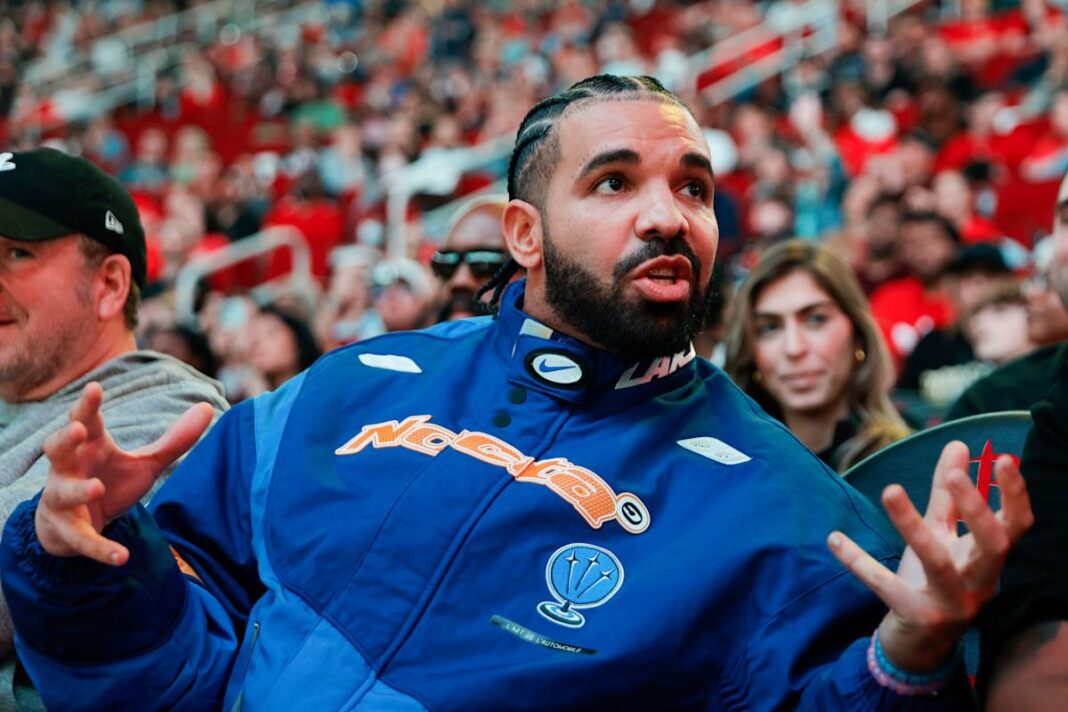The battle lines are drawn in the music industry’s latest high-stakes legal showdown. Drake, the reigning king of hip-hop, is now poised to pull back the curtain on the inner workings of Universal Music Group (UMG) after a court ruled he can request Kendrick Lamar’s contracts as part of his “Not Like Us” lawsuit. This bombshell decision throws open the door to a potential industry earthquake, with Drake’s legal team vowing to expose the “dirty secrets” UMG has been desperately trying to conceal.

Analysis
The judge’s ruling allowing Drake to access Kendrick Lamar’s contracts and internal documents at Universal Music Group (UMG) marks a significant development in this high-profile defamation lawsuit. This access could potentially shed light on the often opaque power dynamics within the music industry and how artist contracts are structured. Unionjournalism will closely analyze these documents for any insights into industry practices, standard clauses, and potential conflicts of interest.
The specifics of Lamar’s contracts – including advance amounts, royalties, creative control, and profit-sharing arrangements – could reveal industry benchmarks and whether UMG employs standard practices or engages in unique agreements with high-profile artists. Additionally, insights into incentive compensation structures for executives like Interscope CEO John Janick could expose potential conflicts of interest and how financial incentives might influence creative decisions.
UMG’s Defenses: Retaliation or Legitimate Concerns?
“Lost Rap Battle” Defense
In its motion to dismiss, UMG dismissed Drake’s claims as a response to a lyrical feud, arguing that the lawsuit stems from Drake’s dissatisfaction with Lamar’s “Not Like Us” diss track. However, this defense raises questions about whether artistic expression should be protected even when it involves criticism or rivalry. It also begs the question of whether UMG would have taken the same stance if Drake had been the artist promoting the diss track.
“Not Like Us” as Opinion, Not Fact
UMG also claims that the lyrics in “Not Like Us” are hyperbolic and should not be taken literally, therefore not constituting defamation. This argument hinges on the interpretation of artistic expression as subjective and opinion-based. While music often employs metaphor and exaggeration, the line between opinion and potentially defamatory statements can be blurry, especially when dealing with serious allegations.
Double Standard Allegation
UMG points to Drake’s past criticism of prosecutors using lyrics as evidence to argue that he is applying a double standard by now claiming defamation. This argument raises questions about the consistency of applying legal standards and whether artists should be held to different expectations when it comes to artistic expression versus their legal standing.
The Road Ahead: Will Discovery Reveal the Truth?
Hearing on Motion to Dismiss
The scheduled June 30 hearing on UMG’s motion to dismiss will be a pivotal moment in the case. The judge’s decision will determine whether Drake’s lawsuit can proceed to the discovery phase, where both sides can access more detailed evidence and information.
Impact on Artist-Industry Relationships
This case has the potential to set a precedent for how artists are treated by record labels and how their creative expression is protected. A ruling in favor of Drake could empower artists to challenge potentially harmful or defamatory content produced by their labels, while a ruling in favor of UMG could solidify the industry’s stance on protecting its promotional interests, even when they involve controversial content.
Public Scrutiny of UMG
The discovery process could expose internal practices at UMG and potentially damage its public image. Public scrutiny of the company’s actions and contractual agreements could lead to increased transparency and accountability within the music industry. Conversely, if UMG successfully defends its actions, it could reinforce its dominance and influence in the industry.
Conclusion
The recent court ruling allowing Drake to request Kendrick Lamar’s contracts as part of his “Not Like Us” lawsuit sends shockwaves through the music industry. This legal battle, which centers on alleged unfair contracts and restrictive practices by Universal Music Group (UMG), now takes a significant step toward transparency. Drake’s legal team argues that access to Lamar’s contracts will reveal the extent to which UMG has exploited artists, potentially opening a Pandora’s Box of similar grievances from other musicians. The legal team’s bold statement, “Now it’s time to see what UMG was so desperately trying to hide,” underscores the gravity of the situation and the potential for a major reckoning within the industry.
This case goes beyond just Drake and Lamar; it has the potential to reshape the power dynamics between artists and record labels. If Drake succeeds in exposing potentially exploitative practices, it could embolden other artists to challenge their contracts and fight for fairer treatment. The music industry, long criticized for its opaque practices, may finally be forced to confront its own ethical challenges. The outcome of this lawsuit could usher in a new era of transparency and accountability, where artists have greater control over their careers and creative output.
The question remains: will this be a watershed moment for artist rights, or will UMG weather the storm and maintain its dominance? The music world waits with bated breath, knowing that the future of artistic freedom and fair compensation hangs in the balance.
